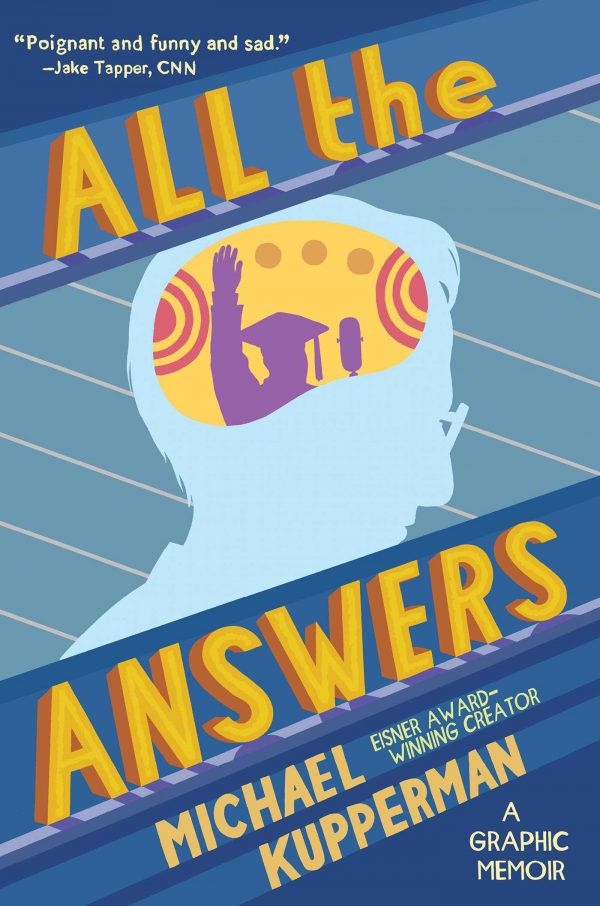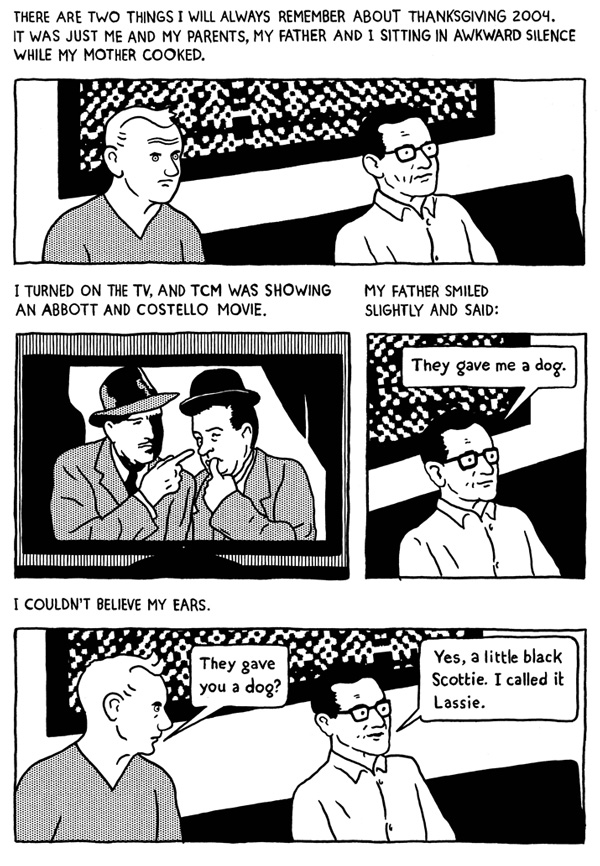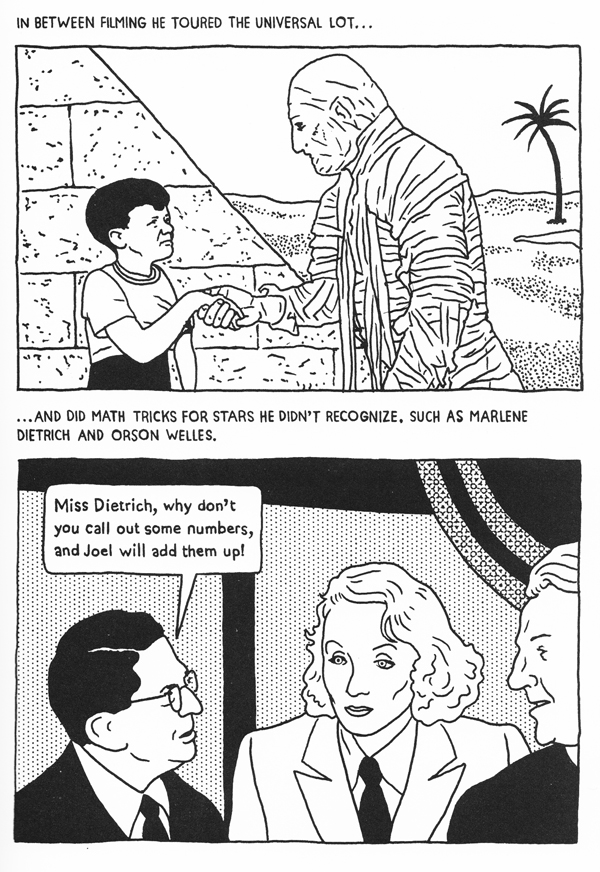Often in our history, but especially right now, popular culture is an obstructive thing, and one of the main things it keeps us from seeing is what happened before whatever is happening now. It’s difficult when you’re wrapped in its haze to see that much of what you are experiencing, appreciating, even being defined by, is just a later iteration of something that has already happened. What seems fresh is actually just the latest in a process.
Michael Kupperman’s All The Answers made me think about that, as well as its relation to family history. The book itself is about his father, Joel Kupperman, who stands at a precipice at the point the book starts. Slipping into dementia, this is Michael’s last chance to approach his father with the questions about the past he has already had. But there are layers of deflection from the past already at work, since Joel Kupperman is not only neurologically parting with his memories, but has already distanced himself from them earlier in his life.
Joel Kupperman became a star mid-century as one of the regulars on the radio show Quiz Kids.
I remember reading a book about Captain Marvel in the 1940s that explained thoroughly something that most of us can’t really conceive — that in the 1940s, Shazam’s costumed hero was probably bigger than Superman, saturating the culture with comics and merchandise that we’ve forgotten.
So it is with the Quiz Kids. We have our own reality television stars, our You Tubers, all commanding our attention and fitting into the perception of a permanent present, where we believe celebrities like these are a symptom of our age. Joel Kupperman’s story is here to tell us that there is nothing new under the sun, it’s as it ever was, what happened before happens again, and all those other cliches.
Quiz Kids was a huge phenomenon. Joel Kupperman was a household name. By the time the book begins, he sits as a ravaged shadow from a long gone world, still touched by its effects but with little or no physical evidence that it existed. And that is also the story of Michael Kupperman’s life. He wasn’t part of Quiz Kids, but his father’s experience on the show would have a never-ending effect on his childhood, his family dynamics, his own entry into adulthood and parenthood.
The book itself is divided into several narratives. One is Michael relating his own life. Another is a pretty straightforward narrative about the Quiz Kids show, from the point of view of his father’s experience, which is also flavored by the involvement of Michael’s domineering grandmother, who pushed her son into celebrity and did everything she could to force him to stay there. Michael also covers the circumstances of his father’s life post Quiz Kids, often with the subtext of trying to reveal the invisible threads between his Quiz Kids experience and his later decision making and general approach to life.
This is all punctuated by recurring conversations between Michael and his father, which are sometimes uncomfortable, sometimes eerie. This could be attributed to the degenerative state his father is in, but what becomes apparent as the book continues is that Michael and his father have always had this detachment, and his father has always had difficulty expressing past events. The truly heartbreaking part of this dynamic is that dementia doesn’t change the relationship as much as you would imagine, and mostly serves as a substantial obstruction to Michael uncovering everything he needs to transition his father’s story clearly into his own. It also stands as a stark personal version of the cultural dissipation of memory I mentioned before — everyone forgets most things, on all levels.
This is all a difficult mix in any presentation, but Kupperman pulls it off with both clarity and emotion in such a way that he’s mesmerizing you and taking you by the hand at the same time. You walk through the journey with him, understanding the historical elements while absorbing the personal ones. And amazingly, there’s probably something in here that each of us can apply to our own experience if we dig hard enough.
And there’s certainly much it has to offer on the subject of child celebrity. Let’s face it, we live in a magical era where the drive to become famous is now equaled by the tools with which to accomplish it, and few are more driven to utilize these tools than young people. YouTube fame is almost entirely the province of the young, and age has a lot to do with the ability to understand the concept of cultural amnesia and how common it truly is. YouTubers will be forgotten, just like most celebrities, but what the experience might wreak upon their lives, that could linger for generations.
For Kupperman, this book appears to be a reckoning, for his own sake and his father’s as well. It’s the stand his father could never take. He didn’t have it in him. But Michael Kupperman does, and it’s such a revealing stand for a son to have to take that I admire him for putting this all down for the rest of us to share.
There are are a lot of lessons in here about family and relationships, but there’s also a lot to say about celebrity, about control of your own life, about finding a purpose, about being insular. It’s a multi-faceted memoir of the collision between the public and the personal, how the tremors move through the decades, and how we would all do well to pop through our cultural bubbles to look back and trace the origins of who we are, why we are this way, and why it sometimes hurts so much when we don’t feel like we actually did anything to make it hurt.










